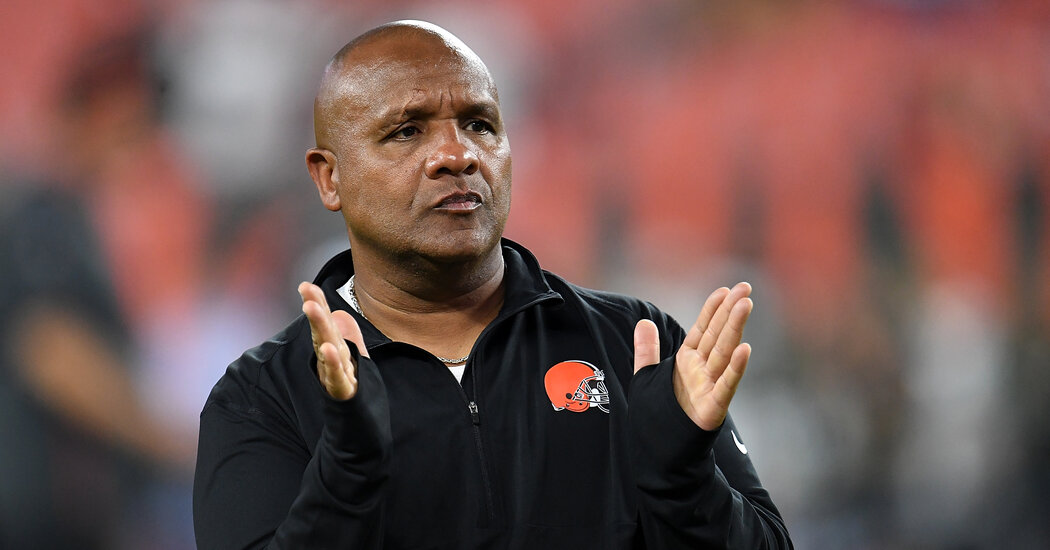
The N.F.L. said that it was unable to substantiate claims made by former Cleveland Browns coach Hue Jackson that the team provided incentives as part of a plan to deliberately lose games to improve their position in the draft in coming years.
Former U.S. attorney Mary Jo White led the league’s look into the claims, reviewing thousands of pages of documents including emails and internal memos related to the team’s four-year plan to revitalize the club, which overlapped with Jackson’s two-year stint as head coach in 2016 and 2017.
“The investigation found no evidence to suggest that the Browns’ Four-Year Plan or the club’s ownership or football personnel sought to lose or incentivized losses and made no decisions deliberately to weaken the team to secure a more favorable draft position,” the league said in a statement.
Jackson did not speak to White and other investigators as part of the review, the league said, but White’s team also reviewed filings and testimony from a prior arbitration between Jackson and the Browns. White also interviewed Browns owner Jimmy Haslam as well as current and former members of the team.
Jackson did not return a call for comment about the league’s findings.
In early February, Jackson said that he received bonuses that reached $750,000 as part of the team’s plan to lose games and improve the Browns’ standing in the following year’s draft. Under Jackson’s leadership, the Browns won just one game in 2016 and none in 2017. He was fired after eight games in 2018, when the team’s record was 2-5-1.
Jackson made the claims just days after Brian Flores, who had recently been fired as head coach of the Miami Dolphins, filed a lawsuit in federal court which alleged that other clubs gave him “sham interviews” for vacant positions they knew they would give to white coaches. Flores’s suit said the practice was part of leaguewide discrimination against Black coaches in their hiring practices.
In that filing, Flores also claimed that Stephen Ross, the owner of the Miami Dolphins, offered to pay him $100,000 for each game he lost while he was head coach of the team.
Ross has denied the allegations.
On Monday, lawyers representing Flores and the two other Black N.F.L. coaches who joined the suit, Ray Horton and Steve Wilks, appeared in New York federal court for a pretrial conference across from the lawyers defending the N.F.L., who include Loretta Lynch, a former U.S. attorney general.
Lynch and the N.F.L.’s legal team have argued that the plaintiffs’ claims should be sent to closed-door arbitration, and have until June 21 to file a motion to compel arbitration. Flores’s attorneys are fighting for the case to be tried in open court.
The plaintiffs also sought to begin limited discovery around whether N.F.L. commissioner Roger Goodell carries biases that should eliminate him as the potential arbitrator. They cited Goodell’s employment status — the 32 teams defending against Flores’s claims determine and pay his salary — as well as the league’s statement immediately after the lawsuit was filed in which it said that Flores’s claims were “without merit.”
The judge hearing the conference deferred a decision on whether that limited discovery can take place until after the N.F.L. files its motion to compel. The plaintiffs will have until July 22 to respond to the league’s motion, but that timeline could be extended if they petition the judge to allow limited discovery around Goodell’s role.
Flores’s attorneys told the judge they would be open to participating in a settlement conference, but the N.F.L. declined, saying it is confident the arbitration process will be neutral.




